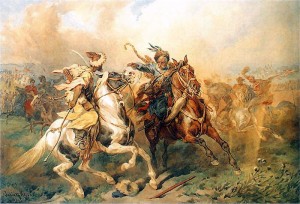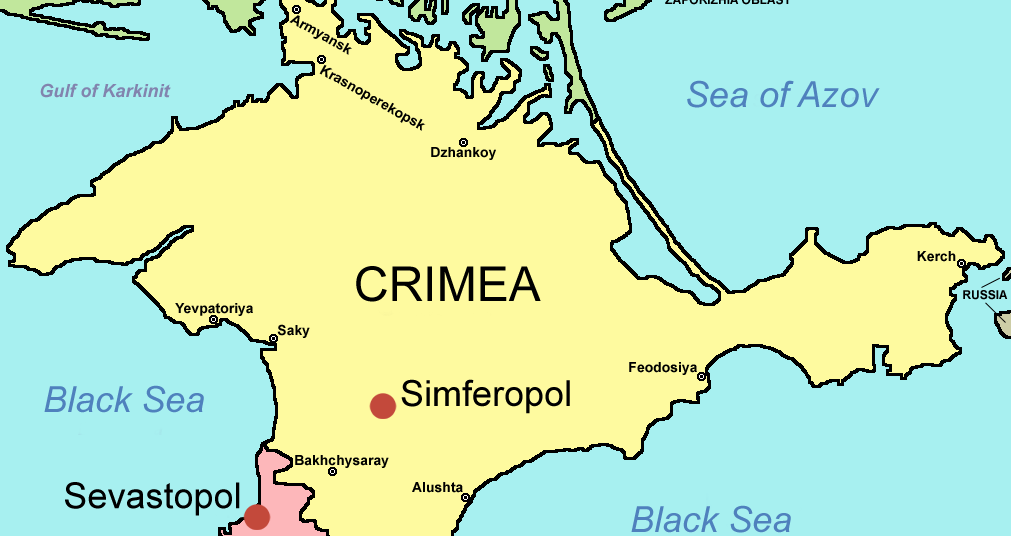On May 18, 1944, Joseph Stalin forcibly deported the Crimean Tatars in what is known as the “Surgun” (Crimean Tatar for ‘exile’). As the recent international crisis in Crimea escalates, the fate of the Crimean Tatars has been neglected through an obscuring of Russian history. The understanding that Crimea is a traditionally Russian territory handed to Ukraine by Nikita Kruschev as a gift negates the role of non-Russian minorities in Ukraine, particularly the Tatars, and it sanctions Russian aggression in sympathy for Russia’s “supra-national sense of shared culture.”

Legitimizing Russia’s claim to Crimea on the basis of culture undermines Crimea’s history as a cultural melting pot. Bulgars, Scythians, the state of Kievan Rus’, Golden Horde Tatars, Ottoman Turks and the Mongols have all populated Crimea in its earlier history. More recently, Crimea was controlled by the Tatars of the Crimean Khanate from the 15th to the 18th century and by the Russian Empire in the 18th through the 20th.
Russia’s claim to Crimea lies primarily in its emotional ties to Crimea’s large Russian population. This population, however, is the result of a historical persecution of the formerly dominant Tatar ethnic group. In 1774, as decreed by the Treaty of Kuchuk Kaindarji, the Crimean Khanate was released from the Ottoman Empire as a nationally independent state. A mere nine years later, contrary to pledges established by the Treaty, the Russian Empire abolished the Crimean Khanate and forced Muslim Tatars under Orthodox Christian rule. In an attempt to ethnically cleanse Crimea (or the Crimea, as it was known until the beginning of the 20th century), the Russian Empire forced the Tatars to migrate to the Ottoman Empire, eliminating two-thirds of Crimea’s preexisting Tatar population by the 19th century. The large Crimean Tatar diaspora in Turkey, primarily in Ankara, Eskisehir and Konya, explains Turkey’s interest in the Ukraine-Russian crisis and desire for Ukraine to maintain “territorial integrity” with regard to Crimea. Russian ethnocentrism was further exacerbated by Stalin in the 1944 Surgun to Central Asia, during which half the 225,000 deportees perished from hunger. In 1980, however, Crimean Tatars began returning to their homeland only to find their homes lost to the new Russian settlers. The fear and resentment bred by the permanent displacement of Crimean Tatars has caused the minority to staunchly oppose prospects of Russian rule.
One of the most important provisions of the Treaty of Kuchuk Kaindarji of 1774 was the debarment of independence for the Crimean peninsula and the outlawing of its submission to a third party. If these provisions were not upheld, Crimea would have to be returned to Turkey in order to protect the rights and dignity of the Crimean Tatar population. With the dissolution of the Soviet Union in 1991 and the division of Russia and Ukraine into two politically autonomous entities, Turkey acquired the right to claim Crimea. With Turkey in the mix and international media drawing attention to the the rights of the Tatar population, Putin has finally acknowledged the Tatar’s place in Crimea promising adequate security for the Tatar community, stating, “measures will be taken to solve all the social and legal problems of Crimean Tatars that went unsolved by Ukranian authorities for many years.”
Russia’s sudden interest in the welfare of Crimean Tatars has surfaced a mere week before the referendum this Sunday in which Crimeans will be asked whether they want to join Russia. However, Mustafa Dzhemilev, a senior figure in the Tatar community and a member of the Ukrainian Parliament, has expressed concern about the legitimacy of the referendum itself, stating that it would violate the 1994 treaty between Russia, Britain and the United States promising to keep Ukraine intact. Dzhemilev has stressed also Crimean “territorial integrity,” asserting that Putin could fulfill his desire to provide security by withdrawing Russian “self-defense” troops from Crimea.
“Territorial integrity,” however, is a contentious term, as the Ukranian government has refused to adopt a law recognizing the ethnically Uzbek Tatars as indigenous people of Ukraine. Ukraine’s refusal to accept the Tatars undercuts Crimean allegiance to Ukraine and further legitimizes the Russian claim. Despite Ukraine’s rejection of the Tatars, however, allegiance with Ukraine seems a more appealing prospect than subjugation under an increasingly nationalistic Russia. The Tatars fear that the nationalist undertones that caused both the 1944 Surgun and the banishment under the Russian Empire may resurface in the midst of Russia’s increasing desire to reestablish itself as a world power.
Russia’s claim to a “supra-national sense of shared culture” with the majority Russians living in Crimea illustrates a growing desire for Russian solidarity. Putin’s vague promise to “solve all the social and legal problems” of the Crimean Tatars contradicts his new policy of “Russification,” which will inevitably discriminate against Russia’s current Tatar population. Additionally, the Crimean Tatars are aware of the issues of education, language preservation and media autonomy facing their fellow Tatars in Russia’s Volga-Ural region.
In the face of persecution, ethnic discrimination and displacement, Mustafa Dzhemilev’s refusal to trust Russia and desire to remain within Ukrainian governance seems justified. The proliferation of Western media regarding Russia’s ethnic claims to Crimea, however, only serves to propel the decontextualized Russian narrative and silence the voice of the Tatars. If the decision of Crimean independence is to be based on cultural and ethnic heritage, an extensive analysis of Crimea’s ethnic and political history is a critical first step.

Importantly, few people know that actually all Tatars are one nation. Only in the anti Tatar and anti Horde ideology they were divided into “different nations”: “Crimean”, “Volga”, “Siberian” and many “other” Tatars – so that to crush them separately.
All about this is explained in the book “Forgotten Heritage of Tatars” (by Galy Yenikeyev). It is about hidden real history of Tatars and their fraternal Turkic peoples. This e-book you can easily find on Smashwords company website: https://www.smashwords.com/profile/view/MIG17
There are a lot of previously little-known historical facts, as well as 16 maps and illustrations in this book.